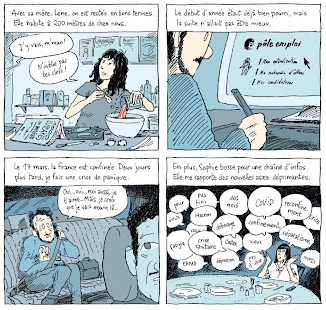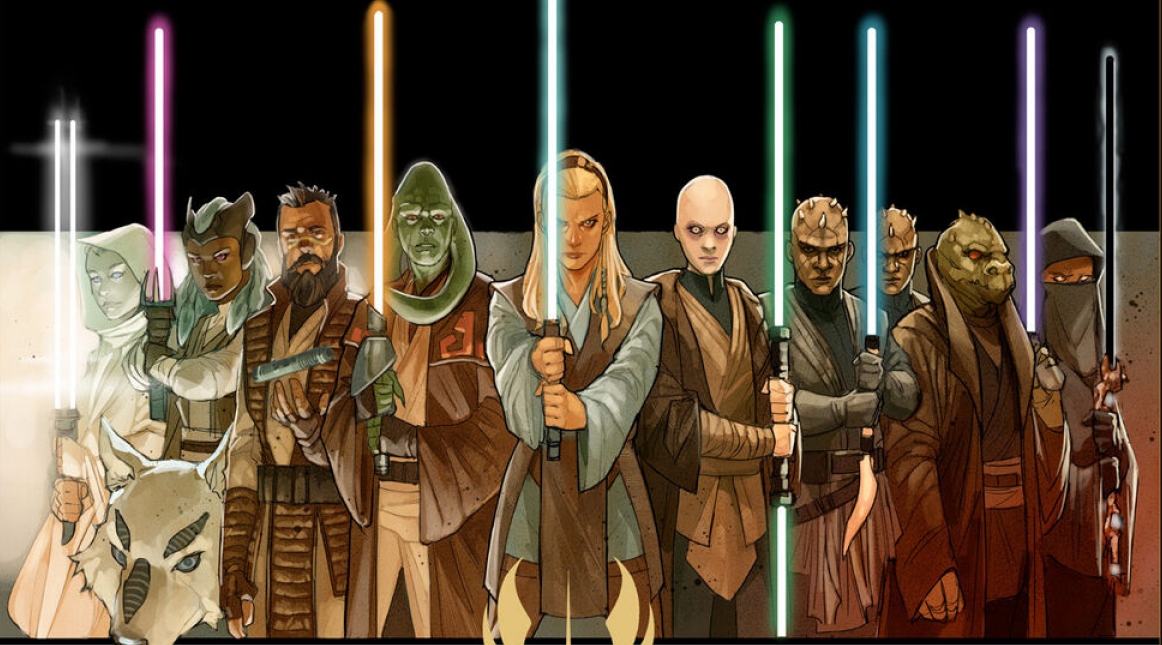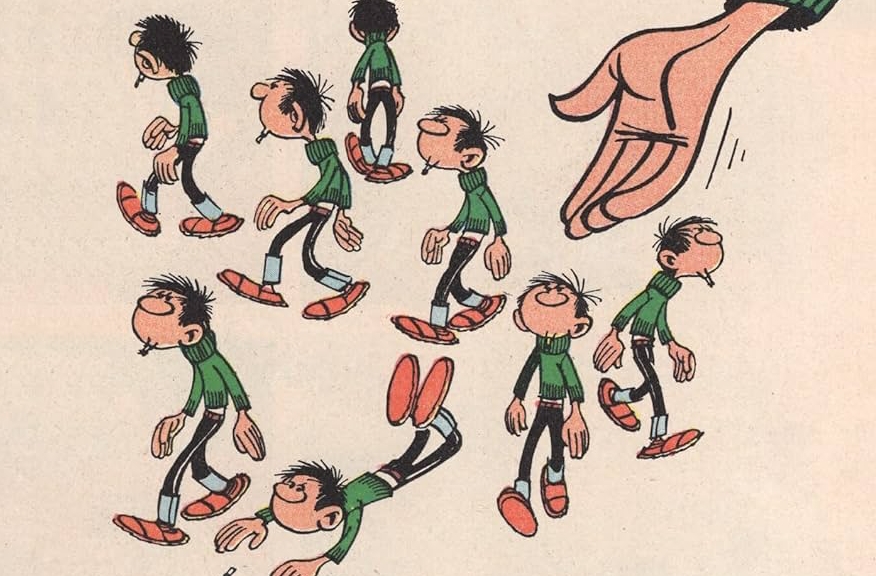As a result of the lockdown, some people have changed their lives. They have moved, resigned or divorced. Fred took a dog, Tiki… But, for him, it's quite an adventure.
The story of a breakup
 During the second lockdown, Fred Leclerc, also co-writer of this volume, decided to buy a Tiki dog. This purchase is a comfort in a difficult time. This surprise delights his wife Sophie and his daughter. We discover the long and careful reflection of the whole family before giving in to a crush and then the ideal first days with Tiki. But the young Shiba quickly reveals a weight that will rot Fred's life. Published by La Boîte à Bulles, Tiki is a rare book. Not only do few comics deal with the adoption of a pet, but even fewer show failure. This situation makes the reader think by showing that an adoption is not trivial. The reader learns a lot. There are hypoallergenic cats. Adoptions have exploded since the beginning of the pandemic… The comic ironically suggests that the walking permits during the first lockdown had an impact. Through a hilarious series, we discover the five golden rules of dressage. Tiki is not only a disturbed dog but he is the signal that shows the flaws of all the people in the family. Very quickly, Fred feels a feeling of jealousy because the dog is the center of attention and the man of the family has less authority than his daughter and his companion. This inability pushes him to introspection. He sees the dog as a demon because Fred hates most pets: he compares parakeets to car sirens that shit.
During the second lockdown, Fred Leclerc, also co-writer of this volume, decided to buy a Tiki dog. This purchase is a comfort in a difficult time. This surprise delights his wife Sophie and his daughter. We discover the long and careful reflection of the whole family before giving in to a crush and then the ideal first days with Tiki. But the young Shiba quickly reveals a weight that will rot Fred's life. Published by La Boîte à Bulles, Tiki is a rare book. Not only do few comics deal with the adoption of a pet, but even fewer show failure. This situation makes the reader think by showing that an adoption is not trivial. The reader learns a lot. There are hypoallergenic cats. Adoptions have exploded since the beginning of the pandemic… The comic ironically suggests that the walking permits during the first lockdown had an impact. Through a hilarious series, we discover the five golden rules of dressage. Tiki is not only a disturbed dog but he is the signal that shows the flaws of all the people in the family. Very quickly, Fred feels a feeling of jealousy because the dog is the center of attention and the man of the family has less authority than his daughter and his companion. This inability pushes him to introspection. He sees the dog as a demon because Fred hates most pets: he compares parakeets to car sirens that shit.
The story of a fall
 The first image of Tiki could be pornographic, that of a pair of buttocks but it is more medical because we understand that Fred receives an injection of sedative. Co-writer with David Azencot, Tiki is the first comic strip by Fred Leclerc who was previously an art director in advertising… just like the main character. More than a work about adoption, Tiki is a graphic autobiography about Fred. The reader discovers his flaws such as his inability to make a decision or say no. The following pages show how an executive in advertising gradually falls into depression. This fall coming from external facts (the covid pandemic, lockdowns and terrorist attacks) necessarily echoes the context experienced by the reader. This crisis is also internal (a dismissal). This feeling of excitement is perfectly captured by Fred Leclerc's drawings. His Franco-Belgian style may evoke children's works, but the deliberately clumsy forms evoke the period of crisis that Fred is going through. David Azencot draws with Tiki his first comic book work. This comedian follower of Comedy Clubs and radio columnist lightens the story with jokes. This goes through images (the hilarious cover of a book: kebabs, a chance for France?) and dialogue (the tragically funny fate of Fred's pet rabbit). Colorist Lucie Firoud also has a leading role in the success. Far from realism, she alternates pages in camaïeu like gray to show Fred's depression and more colorful pages when Tiki arrives. Starting from the failed adoption of a dog, Tiki is a sensitive autobiographical work. Fred Leclerc evokes his flaws born of the health and global crisis and national politics but also his phobias and failures. We follow the countdown to the day by day of a failure but the volume closes with a more positive look. You can find other slices of life in the chronicles on Taxi, Paul & Tom.
The first image of Tiki could be pornographic, that of a pair of buttocks but it is more medical because we understand that Fred receives an injection of sedative. Co-writer with David Azencot, Tiki is the first comic strip by Fred Leclerc who was previously an art director in advertising… just like the main character. More than a work about adoption, Tiki is a graphic autobiography about Fred. The reader discovers his flaws such as his inability to make a decision or say no. The following pages show how an executive in advertising gradually falls into depression. This fall coming from external facts (the covid pandemic, lockdowns and terrorist attacks) necessarily echoes the context experienced by the reader. This crisis is also internal (a dismissal). This feeling of excitement is perfectly captured by Fred Leclerc's drawings. His Franco-Belgian style may evoke children's works, but the deliberately clumsy forms evoke the period of crisis that Fred is going through. David Azencot draws with Tiki his first comic book work. This comedian follower of Comedy Clubs and radio columnist lightens the story with jokes. This goes through images (the hilarious cover of a book: kebabs, a chance for France?) and dialogue (the tragically funny fate of Fred's pet rabbit). Colorist Lucie Firoud also has a leading role in the success. Far from realism, she alternates pages in camaïeu like gray to show Fred's depression and more colorful pages when Tiki arrives. Starting from the failed adoption of a dog, Tiki is a sensitive autobiographical work. Fred Leclerc evokes his flaws born of the health and global crisis and national politics but also his phobias and failures. We follow the countdown to the day by day of a failure but the volume closes with a more positive look. You can find other slices of life in the chronicles on Taxi, Paul & Tom.









































